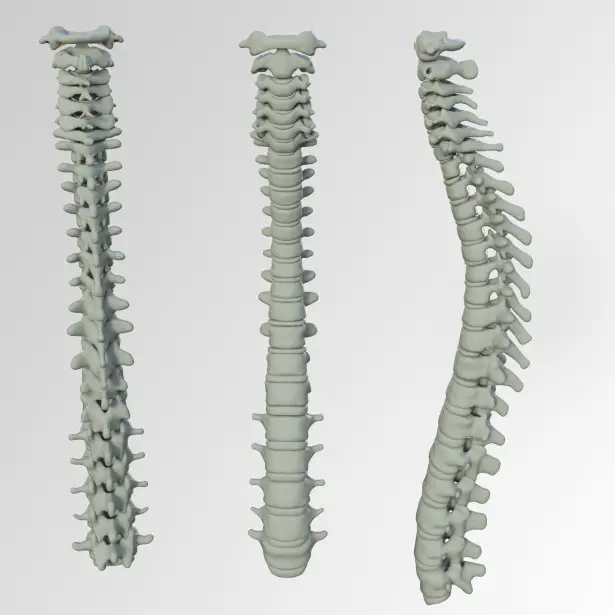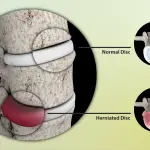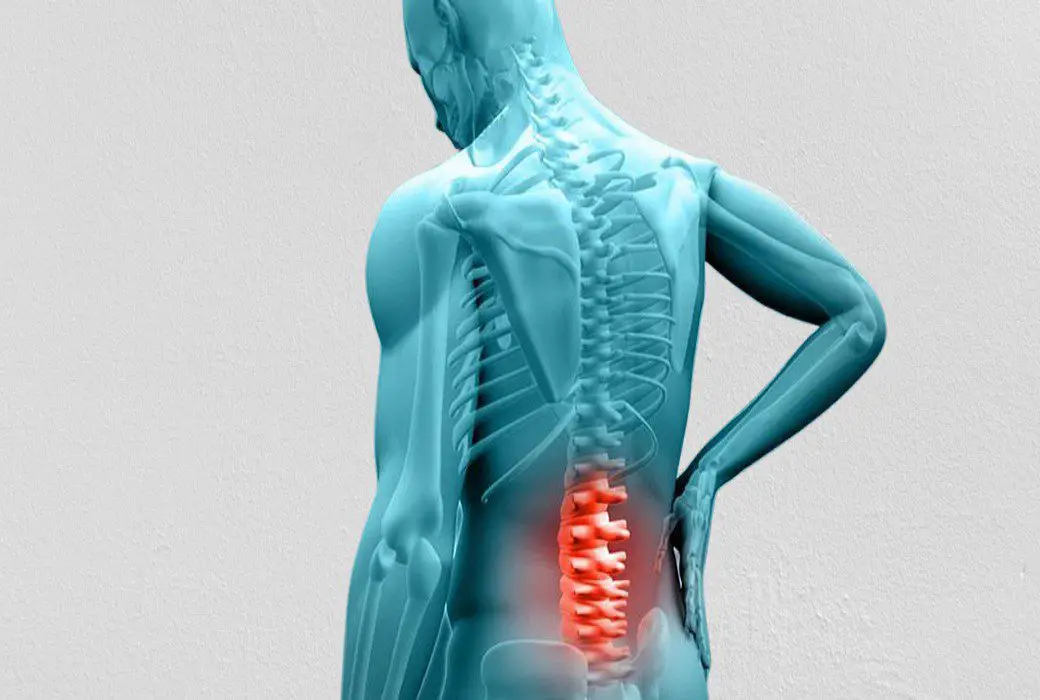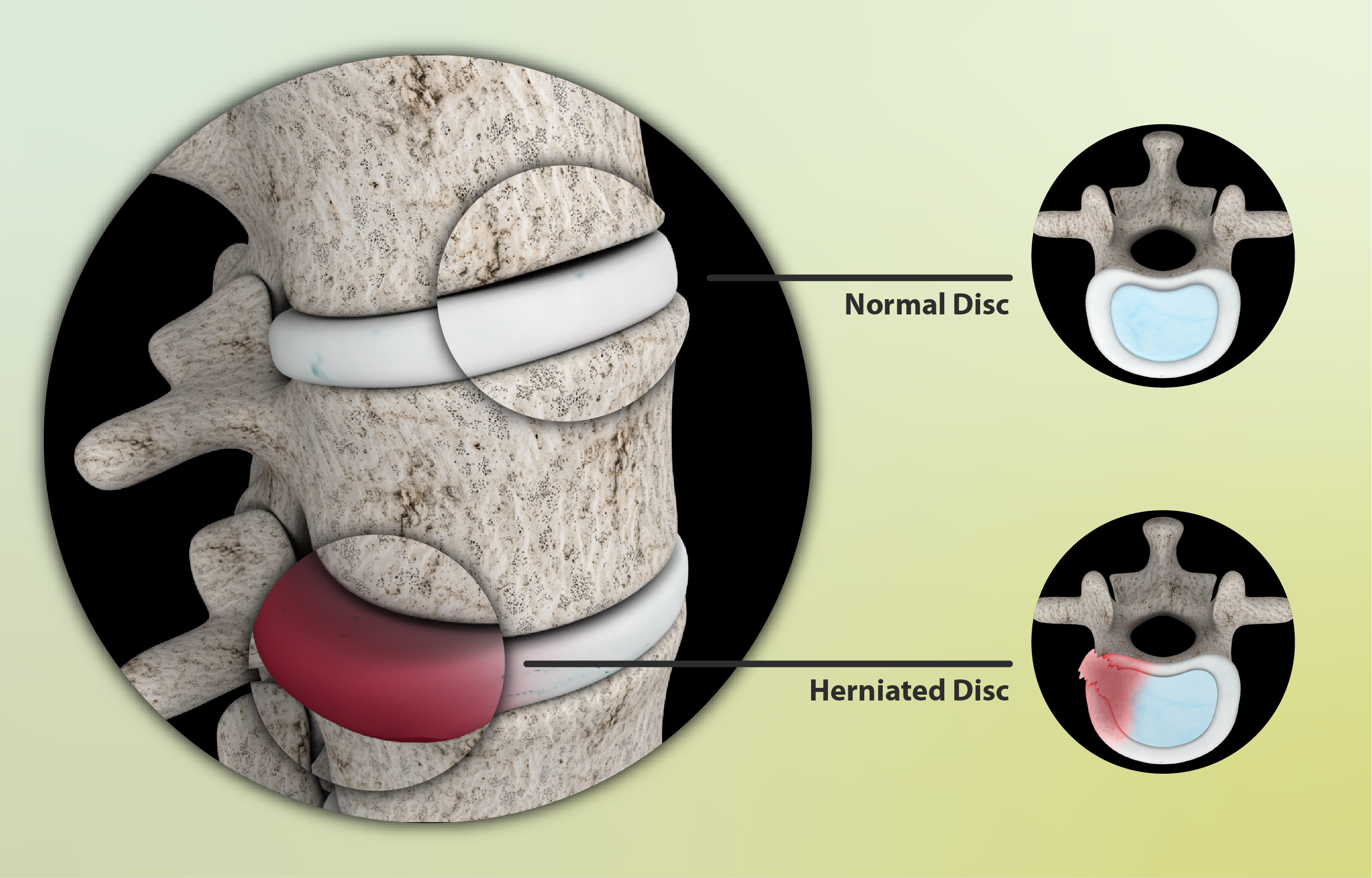Yes, a herniated cervical disc can cause ringing in the ears. This is because a herniated cervical disc can put pressure on nerves in the neck, which can then irritate and affect the auditory nerve. This irritation of the auditory nerve can lead to tinnitus, or ringing in the ears.
Additionally, a herniated cervical disc can also cause neck pain and headaches, as well as other symptoms like dizziness or balance problems. It is important to consult with your doctor if you have any of these symptoms, as they may be caused by something else and require medical attention. Treatment for a herniated cervical disc may include physical therapy, steroid injections and/or surgery depending on the severity of the condition.
Can A Pinched Nerve In The Neck Cause Ringing In The Ears?
Yes, a pinched nerve in the neck can cause ringing in the ears. This is known as tinnitus, and it is caused by compression of the nerves supplying the inner ear. The compression can be caused by physical or emotional stress, or even an injury to the neck area.
Tinnitus can also be caused by certain medications and allergies. Symptoms of a pinched nerve in the neck causing tinnitus include a feeling of fullness in the ears, buzzing, roaring or clicking noises. If left untreated, tinnitus can progress to more serious conditions such as hearing loss and vertigo.
It is important to seek medical attention if you are experiencing any of these symptoms so that your doctor can properly diagnose and treat your condition.
How Do You Treat Cervical Tinnitus?
Cervical tinnitus is a condition that can cause a person to experience ringing in the ears. Treatment for cervical tinnitus will depend on the underlying cause. Generally, treatment options may include lifestyle changes, such as avoiding loud noise and reducing stress levels.
In some cases, medications may be prescribed to reduce inflammation and other symptoms associated with cervical tinnitus. Additionally, sound therapy or masking devices may be used to reduce the intensity of the ringing sounds. Surgery may also be an option in cases where an anatomical abnormality is causing the tinnitus.
However, surgery should only be considered if all other treatments have failed. It is important to talk to your doctor before attempting any treatment for cervical tinnitus.
Can Herniated Disc In Neck Cause Ear Problems?
A herniated disc in the neck can absolutely cause ear problems. This is due to the fact that a herniated disc in the neck can put pressure on the nerves that travel from the neck to the head, and if those nerves become compressed, then they can affect the functioning of our ears.
Symptoms of a herniated disc in the neck causing ear problems include pain or ringing in one or both ears, hearing loss, muffled sounds, dizziness, balance problems and even fatigue. Treatment for this condition typically includes physical therapy, medications and sometimes surgery if it is severe enough.
It is important to seek medical attention if you are experiencing any of these symptoms so that you can get an appropriate diagnosis and treatment plan.
What Nerves Cause Ringing In Ears?
Tinnitus, or ringing in the ears, is often caused by nerve damage. The most common type of tinnitus is associated with exposure to loud noise, which can cause damage to the hairs that line the cochlea, a part of the inner ear.
Other causes of tinnitus include age-related hearing loss, head and neck trauma, ear infections, allergies, and medications like antibiotics and aspirin. Nerve damage can also be caused by diabetes or physical injury to the head or face. In some cases, no cause for tinnitus can be identified.
Most people experience a mild form of tinnitus that does not require treatment, but those with severe symptoms may need medical intervention. Treatment options range from lifestyle changes like avoiding noisy environments to medications and even surgery in some cases.
Can Tinnitus Caused By Neck Problems Be Cured?
Yes, tinnitus caused by neck problems can be cured. Depending on the severity of the issue, treatment may vary. Some people find relief with physical therapy and chiropractic treatments, while others might need surgery to correct the underlying condition.
In some cases lifestyle changes such as avoiding loud noises, taking medications like anti-inflammatories or muscle relaxants, and avoiding certain foods or drinks can also help reduce symptoms. Additionally, there are various sound therapies available that can help mask the noise of tinnitus and create a more peaceful environment for those who suffer from it
Ultimately, consulting with a doctor is the best way to determine an appropriate course of action for treating tinnitus caused by neck problems.
How Do You Stop Neck Tinnitus?
Neck tinnitus can be a difficult and uncomfortable condition to manage, but there are steps you can take to help ease the symptoms. The first step is to identify any underlying causes that may be contributing to the condition, such as stress or neck injuries. It’s important to get these addressed if possible.
Once any underlying causes have been identified and treated, lifestyle changes may also help reduce neck tinnitus symptoms. Regular exercise, balanced nutrition, and adequate sleep can all help improve overall health and well-being. Additionally, relaxation techniques such as meditation or yoga can be helpful in reducing stress and tension associated with neck tinnitus.
Finally, medications such as muscle relaxants or anti-inflammatories may provide some temporary relief from neck tinnitus symptoms. Speak with your doctor about the best treatment option for you.
Does Your Tinnitus Make You Angry?
Tinnitus can be a frustrating condition to live with, and it is understandable that it can cause anger. This can be especially true if your tinnitus is particularly loud or persistent, as it can interfere with daily life and make tasks more difficult. However, it is important to remember that getting angry at tinnitus won’t make it go away, and may even make it worse. Instead, try to focus on calming activities such as mindfulness or relaxation techniques, or talking to a counselor about the emotions that tinnitus causes.
It is also important to get treatment for your tinnitus if possible, as this may help reduce the severity of the symptoms and make living with it less challenging. With patience and perseverance, you can learn to manage your tinnitus better and find ways to cope with its presence in your life.
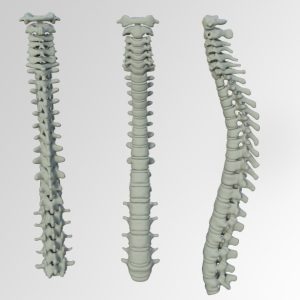
Does Your Tinnitus Make You Feel Confused?
Tinnitus can be a very confusing thing to experience. It can cause a range of feelings, from confusion and frustration to anxiety and depression. You may find yourself constantly trying to make sense of the ringing or other sound in your ears, and it can be difficult to know what to do.
The best way to deal with tinnitus is to take control of your own wellbeing. Seek professional advice if you need it, but also make sure you’re taking time out for yourself, managing stress levels and getting plenty of restful sleep. Meditation can also be helpful as it helps relax the body and mind, which may help reduce the intensity of tinnitus symptoms. By taking such steps, you will have more control over your tinnitus and may even find that it improves over time.
Can Neck Exercises Help Tinnitus?
Neck exercises have been known to help tinnitus, a medical condition characterized by persistent ringing in the ears. Tinnitus can be caused by a variety of factors, including noise exposure, circulatory issues and neck tension.
Neck exercises improve circulation to the head and neck area and can help reduce muscle tension that can contribute to tinnitus. These exercises also help strengthen neck muscles which helps support the head and neck. In addition, they increase blood flow throughout the body and can reduce stress levels which are often linked to tinnitus.
Neck exercises may not cure tinnitus entirely but they do provide relief from some of its symptoms. It is recommended that those suffering from tinnitus should consult their doctor before beginning any exercise program as certain movements may worsen their symptoms.
Can Cervical Tinnitus Go Away?
Cervical tinnitus is a type of tinnitus, which is an abnormal ringing or buzzing sound in the ear. It is often caused by neck pain and can be difficult to diagnose. While it can be a sign of serious health issues, it can also go away on its own.
In many cases, cervical tinnitus will resolve itself after a few weeks or months with no treatment. However, if the condition does not improve on its own, seeing a doctor for further evaluation and treatment may be necessary. Treatment options for cervical tinnitus may include physical therapy and medications to relieve neck pain and reduce inflammation.
Additionally, lifestyle modifications such as reducing stress levels and avoiding loud noises can help alleviate symptoms of cervical tinnitus.
Where Do You Massage For Tinnitus?
Tinnitus is a condition that affects the ears and causes persistent ringing, buzzing, and other noises. When dealing with tinnitus, it is important to understand which areas of your body can be massaged in order to help reduce symptoms or provide relief from the discomfort it can cause. Generally speaking, massaging around the neck and shoulder area can help relieve tension that could be contributing to the symptoms.
Additionally, massaging over the jaw joint and muscles of the face is also beneficial for some people. Applying pressure on specific points around the ear may also provide relief from tinnitus related discomfort. It is best to consult with a healthcare professional before beginning any massage therapy regimen as they can provide guidance on how to safely massage these areas of your body.
Can Chiropractor Fix Tinnitus?
A chiropractor is a healthcare professional who specializes in manipulating the spine and other parts of the body to help manage pain and improve physical wellness. While there is no definitive answer as to whether a chiropractor can fix tinnitus, some studies have suggested that chiropractic care may be beneficial for those suffering from this condition. Others have also asked can a chiropractor identify a herniated disc.
It is believed that by realigning the vertebrae, chiropractic adjustments may help reduce pressure on the inner ear and relieve some of the symptoms associated with tinnitus. Additionally, research has shown that chiropractic treatment can help reduce stress levels, which can cause tinnitus to become worse.
While more research needs to be done in order to definitively answer this question, it is worth considering consulting a qualified chiropractor if you are struggling with tinnitus.
